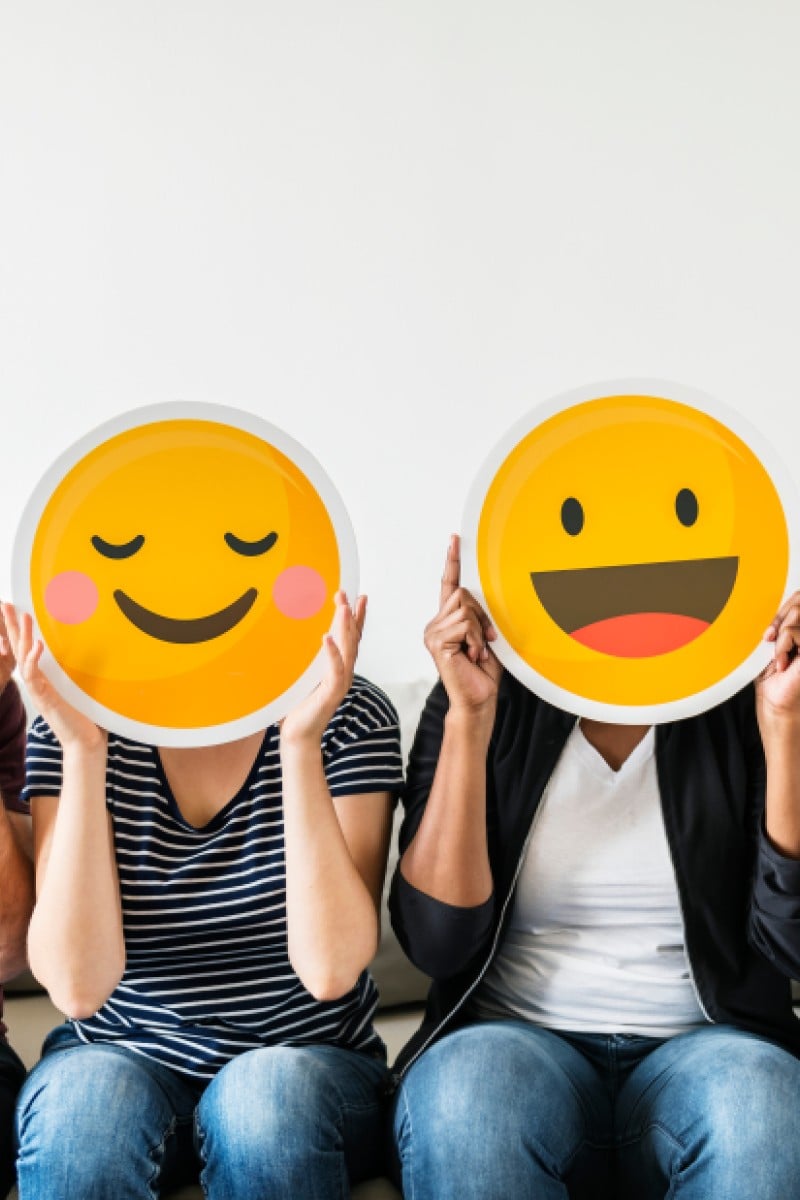
On World Mental Health Day 2019, we look at how social media can be a force for good
We all know about the downsides of platforms like Instagram and Facebook, but experts say they can also bring positivity into your life
 Social media is blamed for a decline in mental health, but it can help as well.
Social media is blamed for a decline in mental health, but it can help as well.We’re often told that spending too much time online and comparing ourselves to others can wear away at our self-worth. But the flip side of this argument – that social media is driving a positivity movement – is rarely talked about.
How many times have you said “I’m fine”, when in reality, nothing could be further from the truth? Sometimes it’s just easier to say nothing’s wrong because you’re not ready for someone else to try to “fix” things.
That’s where social media comes in.
Is your mental health suffering? It might be compassion fatigue
Think about the number of Instagram accounts that promote positivity and mental well-being, or even the number of memes that gently satirise therapy sessions.
It takes very little effort to like an IG post that talks about feeling down or offers words of encouragement. Interacting, and seeing others interact, with posts like this can make users feel as if they aren’t alone – and that in itself can make a big difference to people struggling with low self-esteem or mental illness.
“Young people can benefit from the insight that there are others out there exactly like them,” Dr Michael Eason, a psychologist and counsellor with the Hong Kong-based psychology practice MindnLife, says. “The ‘I’m not alone’ discovery can be a light-bulb moment that saves many lives. This is especially true for people who live in rural communities or who are part of a minority, such as at-risk LGBTQ+ youth.”
“Hearing stories about how someone else has gone through something similar to you is known to be helpful in reducing the stigma and feelings of shame around mental health,” adds Dr Hannah Reidy, psychologist and CEO of mental health charity Mind HK. This stigma, along with other factors like a lack of resources or high costs, often prevent young people in Hong Kong from seeking help. Online platforms help to remove some of these psychological and physical barriers.
“Help and support groups have always been a tool for recovery from physical and mental conditions,” says Dr Tony Wong of The London Medical Clinic, in Hong Kong. “Social media allows better access for young people by removing geographical boundaries.” In some cases, he adds, its relative anonymity can also reduce the stigma of seeking help.
However, PhD psychology student Natalie Wong from Chinese University warns there are drawbacks to using social media as a form of treatment. “People can actively create and disseminate information that matches their taste,” she says. “[Social media] can turn an open platform for interaction into an environment that reinstates one’s beliefs or bias … which can be bad for our psychosocial well-being.”
Open dialogue about mental health issues is essential and important
It can also make young people feel more lonely, says Reidy, if, for example, they “feel left out of certain social media groups or events, or if a young person feels that they don’t fit the mould, or the way that other people are discussing a certain topic.”
Besides platforms like IG and Tumblr, apps such as 7 Cups and BetterHelp provide online therapy and support, where users can reach out to professional counsellors. While Eason and Wong agree that seeking any help is better than not seeking help at all, these apps shouldn’t be the only qualified help someone seeks. “As amazing as technology can be, there is simply no replacing the therapeutic power of face-to-face human interaction,” says Eason.
There are other drawbacks to solely relying on apps to improve your mental health. Apps that link to text or Skype counselling, Reidy says, should always be vetted to make sure the person you’re speaking to is qualified to help you.
How to take care of your mental health during the Hong Kong extradition bill protests
Wong agrees. “With so much choice out there, it may be hard to determine if [the app] has been vetted by professionals, and if the advice is sound. Interactions online with professionals can lack the intimacy of a real-life consultation and conversation,” he says. Sometimes, he adds, simply making the effort to leave home to attend a face-to-face session can be helpful.
The trick, Eason says, is to find the balance between social media and social reality. “As with many things in life, there are both pros and cons to modern social media use. Some of the mental benefits include an increased sense of social connection, positive self-esteem, and identity formation,” he says. “On the other hand, negative mental impacts may arise from bullying, rejection, or the fear of missing out.”
When used sensibly, social media can be a great medium for people who feel unable to reach out to those around them. “A big part of growing up is learning who you are, and this can sometimes feel quite isolating for young people,” Reidy says. “Social media’s ability to connect people through shared interests or traits can definitely bring people together and help with isolation.”
Here are some inspirational or mental health IG accounts that you might want to follow:
selfcareisforeveryone, positivelypresent, anxiety_wellbeing, myselflovesupply, emotions_therapy, advocatingmentalillnesses, revelatori, and iweigh
If you or someone you know is struggling with mental illness or suicidal thoughts, there are many resources available to help you:
The Samaritans: 2896 0000
The Samaritan Befrienders Hong Kong offers online support at help4suicide.com.hk and a 24 hour hotline: 2389 2222
Suicide Prevention Service: 2382 0000
HKFYG Counselling Service: 2777 8899
HKFYG uTouch Portal has an online chat forum from 2pm to midnight (Monday to Saturday) at utouch.hk
